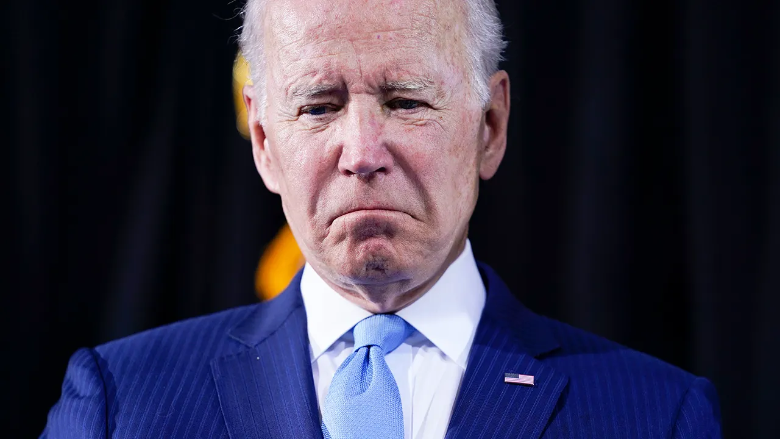Florida has filed a major lawsuit against the Biden administration, accusing it of refusing to provide vital immigration information necessary to verify voter registration and prevent noncitizens from casting ballots. This legal challenge marks the latest in a series of clashes between Republican-led states and the federal government over election integrity and immigration enforcement.
The lawsuit, first reported by Fox News, focuses on the Department of Homeland Security’s (DHS) alleged failure to comply with requests from state and local governments seeking to confirm the immigration status of individuals within their jurisdictions. According to Florida officials, access to DHS databases is crucial for ensuring that noncitizens, including illegal immigrants, are not unlawfully registering to vote.
Florida’s Attorney General Ashley Moody has been at the forefront of the legal effort, emphasizing the state’s commitment to upholding the sanctity of its voter rolls. “Voting is a right granted to American citizens — not illegal immigrants or other noncitizens,” Moody said in a statement. She went on to criticize the Biden administration for allowing millions of noncitizens into the country, stressing that keeping voter rolls free from ineligible individuals is essential for maintaining election integrity.
At the heart of the lawsuit is Florida’s demand that the DHS fulfill its legal obligation to provide the requested immigration data. The state argues that federal law mandates the DHS to respond to such inquiries from states, and by withholding this information, the federal government is actively hindering efforts to keep voter registration records accurate. The complaint further underscores the urgency of the situation, citing the ongoing immigration crisis at the southern border as a factor that has resulted in millions of noncitizens entering the United States.
The state’s top election official, Florida Secretary of State Cord Byrd, echoed Moody’s concerns, pointing out that the Florida Constitution restricts voting rights to U.S. citizens only. Byrd argued that without access to the necessary data, the state is unable to ensure that only eligible citizens are participating in elections. “We are going to prevail in our effort to uphold the law and the Constitution’s guarantee of one citizen, one vote,” Byrd declared.
Florida’s lawsuit is part of a broader effort by GOP-led states to challenge the Biden administration on issues related to election integrity, immigration, and the enforcement of federal law. Florida is not alone in seeking access to DHS databases for voter verification purposes. Other Republican-led states, including Ohio, have made similar requests, arguing that verifying voter eligibility is essential for preventing illegal voting.
In previous cases, the Department of Justice (DOJ) has taken a firm stance against efforts by states to remove noncitizens from their voter rolls. The DOJ has sued states like Alabama and Virginia for their attempts to conduct voter roll maintenance, citing the “Quiet Period Provision” of the National Voter Registration Act (NVRA), which limits voter list cleaning within 90 days of an election. This provision is intended to prevent widespread voter roll purges that could disenfranchise legitimate voters during election seasons.
However, state officials in places like Virginia and Alabama have defended their efforts as necessary to safeguard the electoral process. Virginia Governor Glenn Youngkin, for example, has criticized the DOJ’s lawsuits as “politically motivated,” accusing the federal government of obstructing legitimate efforts to maintain accurate voter rolls.
In the case of Florida’s lawsuit, Moody and Byrd contend that the federal government’s refusal to comply with immigration verification requests places an undue burden on states to maintain election integrity. They argue that DHS’s noncompliance is a direct violation of federal law and is preventing Florida from carrying out its constitutional duty to ensure that only citizens are eligible to vote.
At the core of Florida’s lawsuit is the concern that millions of noncitizens, including those who have entered the U.S. illegally, could be registering to vote and potentially participating in elections. These concerns have been amplified by the current immigration crisis, which has seen record numbers of people crossing the southern border. Florida officials argue that without access to DHS’s immigration records, they cannot effectively verify the citizenship status of those attempting to register to vote.
The lawsuit highlights growing fears among Republicans that noncitizens may be gaining access to the electoral system, either intentionally or through bureaucratic errors. While documented cases of noncitizen voting are rare, GOP officials have pointed to isolated incidents as evidence of a larger problem that could undermine public confidence in elections.
Critics, however, argue that these concerns are overstated and that efforts to verify voter citizenship could result in the disenfranchisement of legitimate voters, particularly minorities and immigrants who are lawfully eligible to vote. Voting rights advocates have warned that aggressive voter roll maintenance efforts, particularly those targeting noncitizens, could lead to the removal of legitimate voters from the rolls and make it more difficult for people to participate in elections.
Florida’s lawsuit is expected to take months to resolve, with significant legal challenges likely from the Biden administration and the DOJ. If the courts side with Florida, it could set a precedent for other states seeking access to DHS databases for voter verification purposes. This would represent a major victory for Republicans, who have made election integrity a central focus of their political platform in recent years.
However, if the courts rule in favor of the federal government, it could strengthen the position of the Biden administration in its ongoing battles with GOP-led states over immigration and voter rights. Either way, the outcome of this case could have far-reaching implications for the future of voter verification efforts in the United States.
As the legal fight unfolds, Florida’s leadership remains determined to push forward. “We will not back down in our efforts to protect the integrity of our elections,” Byrd said. “The people of Florida deserve to know that their votes are secure and that only citizens are participating in our democratic process.”

